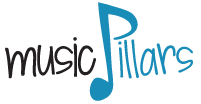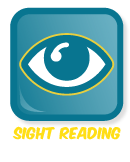Our Mission is to put “Play back into Music.”
When we say “Play” – we mean it in two distinct and important ways:
Students will be connected to, and inspired by, the music that they are learning.
Students will be well-rounded musicians, and NOT technically proficient – but musically illiterate players
So what does that brief Mission Statement mean in the day-to-day lessons and musical journey of a student? Read on my friends!
1. Students will be connected to, and inspired by, the music that they are learning.
We have students very interested in Jazz, others in Mozart Sonatas or a Bethoveen Sonata, others love Taylor Swift, some Disney music, Metallica, Van Halen, Irish Jigs, Church Hymns, Folk Music, etc…
At MP – it doesn’t matter to us what music the student likes that “speaks” to them…What matters is that they identify and connect with the music. Learning an instrument is a long and tough journey, it is a marathon – not a sprint. You can’t sign up for lessons and treat it like rec soccer. Learning an instrument takes self-discipline, long-term commitment, and consistent practice over an extended period of time.
So with that said, we think that the journey can be much more enjoyable and rewarding if the music that a young student is trying to “hack” out is music that they genuinely enjoy and like. So the first part of putting “Play” back into music, is to have students be connected to, and inspired by, the music that they are learning.
2. Students will be well-rounded musicians, and not just technically proficient – but musically educated players
Now don’t think that lessons/practice is going to be all about the one Taylor Swift song that your 9 year old loves. And this is the second part of “Play” – is that we want to give students musical tools for life, not just the technical ability to play a few songs. And this requires study and curriculum that then focuses on the Eight Core Pillars at Music Pillars.
Those pillars are:
Each of these pillars deserves a great deal of time and consideration, so please click around on the website to read more about what each of those pillars means. But in essence – we do not want to have students leave our studio with this often-repeated experience;
“I took lessons for a couple years, but I don’t remember anything”
Or
“I can play XYZ, and ABC song – but that’s about it”
Or, even worse (and we have this kind of teacher-audition experience fairly often – very sad, but very common) a student/adult spent hours and hours and hours learning to play some dazzling etude or concerto – but can’t read a lead sheet, play by ear, has never played in a band or ensemble, never written a piece of music, can’t improvise – basically cannot do anything except play their 2-6 “show-pony” songs.
That may be harsh, but we’re being harsh for a reason. It’s a real shame, and an unnecessary waste of parents/students money to have this kind of experience. This is typically the result of two forces combining:
1. Classical Teachers who have never made a living as an actual musician (and no, playing for your church for $300/month does not qualify as a professional musician), and also never had (usually its no fault of their own – its just how they were taught) any training or experience playing by ear, composing, improvising, playing off lead sheets (Music Theory CANNOT be taught without this, but sadly it is, everyday all over the world, and so theory stays as this –abstract worksheet/fill-in-theV7 chord experience for students) playing in a band, or sight-reading music in a live performance setting. And so there is no malice here, but teachers with that background will have a tendency to then repeat and focus on that myopic part of music at the expense of almost everything else. AND
2. Parents who mean well, but if they were honest with themselves would realize that they really want their son/daughter to get musical “merit-badges” that they can put on their resume for college, and hopefully play a couple technically-dazzling pieces for family/friends when they come over.
Notice how there isn’t too much about the student’s actual development in that paragraph above? Well, our vision at MP is to change that experience. Putting “Play” isn’t a cheap slogan we came up with to put on our business cards, it’s a legitimate change in how we teach and shape the next generation of musicians.


















